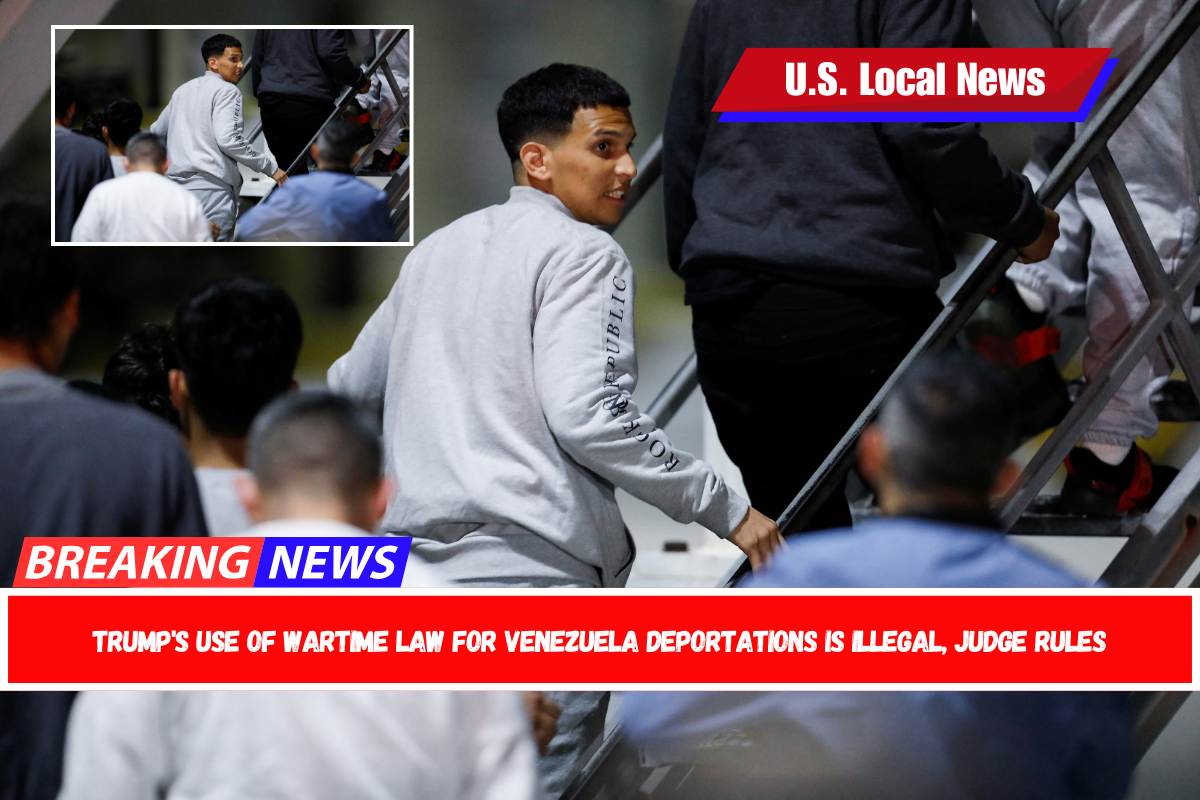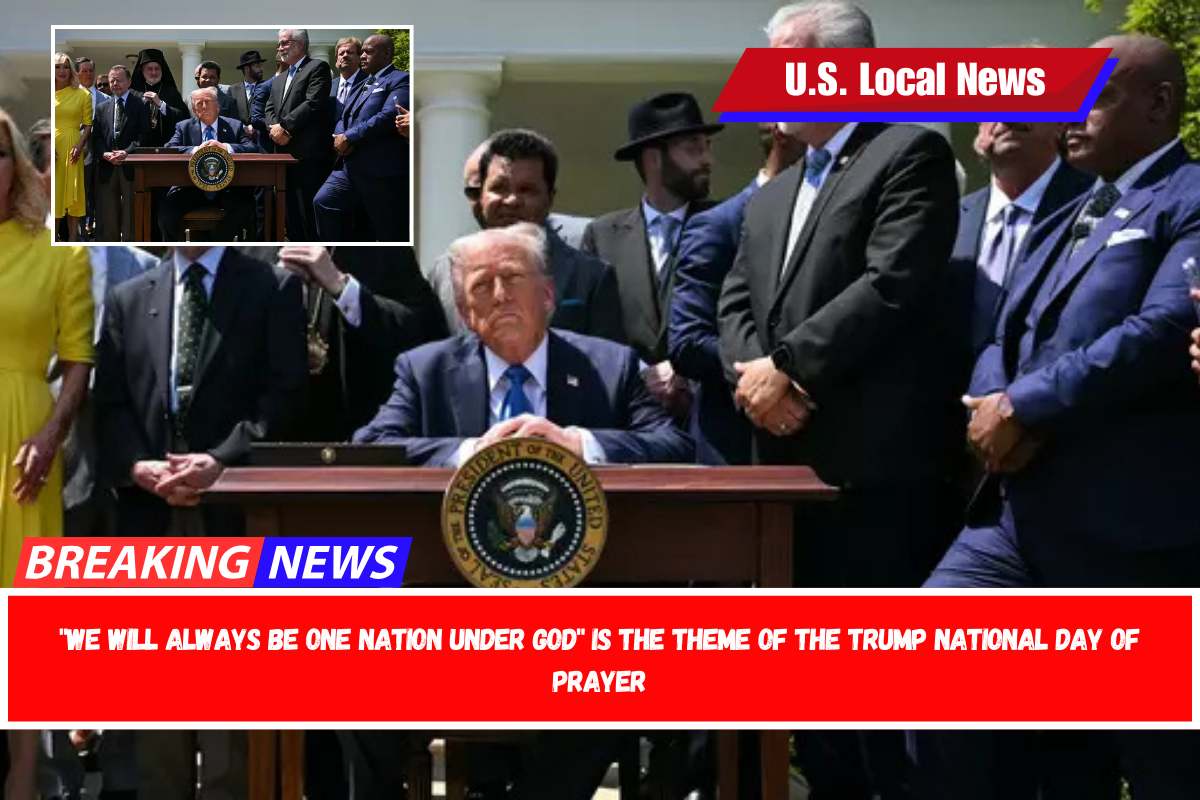NEW YORK – A US judge on Thursday blocked President Donald Trump’s administration from deporting some Venezuelan migrants under an 18th-century wartime law, in the most sweeping decision yet against a key component of the Republican president’s aggressive immigration crackdown.
In a 36-page opinion, U.S. District Judge Fernando Rodriguez of Brownsville, Texas, ruled that the Trump administration went beyond the scope of the Alien Enemies Act by using it to expedite the deportation of alleged Tren de Aragua members. The government classifies the gang as a terrorist organization.
Multiple courts are challenging Trump’s mid-March proclamation, which invokes the 1798 law to justify rapid deportations.
Judges in several states have temporarily halted the administration’s deportation of migrants detained in their districts under the Alien Enemies Act, with a Colorado judge ruling last week that the administration must give migrants at least 21 days to challenge their potential removal in court.
Rodriguez’s decision went further. The judge, appointed by Trump during his first term, permanently prohibited the administration from deporting Venezuelans detained in the Southern District of Texas under the law.
His decision was also the first to explicitly reject Trump’s use of the Alien Enemies Act, stating that Tren de Aragua’s actions in the United States did not constitute a “invasion” or “predatory incursion” that would justify the use of the law.
“The President’s invocation of the AEA through the Proclamation exceeds the scope of the statute and, as a result, is unlawful,” wrote Rodriguez, whose district includes the detention facility from which at least 137 Venezuelan men were deported to El Salvador on March 15, immediately after Trump invoked the law.
In a statement, White House spokesman Kush Desai said Trump’s election victory gave him the authority to “deport terrorist illegal aliens.”
“The Trump administration is committed to unapologetically using every lever of power endowed to the executive branch by the Constitution and Congress to deliver on this mandate, and we are confident that we will ultimately prevail,” Desai told reporters yesterday.
The administration could appeal Rodriguez’s decision to the Fifth U.S. Circuit Court of Appeals, which is widely regarded as the most conservative of the country’s 12 appellate circuits.
The Alien Enemies Act is best known for interning and deporting people of Japanese, German, and Italian descent during WWII.
Lee Gelernt, a lawyer with the American Civil Liberties Union who represents Venezuelan migrants, stated that Congress did not intend for the law to be used in the manner that Trump has.
“The court critically held that the president cannot simply declare that there is been an invasion of the U.S. and then unilaterally invoke an 18th century wartime authority during peacetime,” Gelernt told reporters.
Many of the Venezuelan men deported under the law last month, according to relatives and lawyers, are not Tren de Aragua members and were not given the opportunity to contest the administration’s allegations.
Following those deportations, the United States Supreme Court ruled on April 7 that the Trump administration must allow migrants to challenge any future Alien Enemies Act deportations in court.
The ACLU responded by challenging deportations under the law in courts across the country where Venezuelan migrants were detained.
Last week, the civil liberties group also asked Washington-based U.S. District Judge James Boasberg to order the Trump administration to facilitate the return of migrants who have already been deported to El Salvador, where the US is paying President Nayib Bukele’s government $6 million to detain them at the Central American country’s Terrorism Confinement Center.
Boasberg has not yet ruled.















